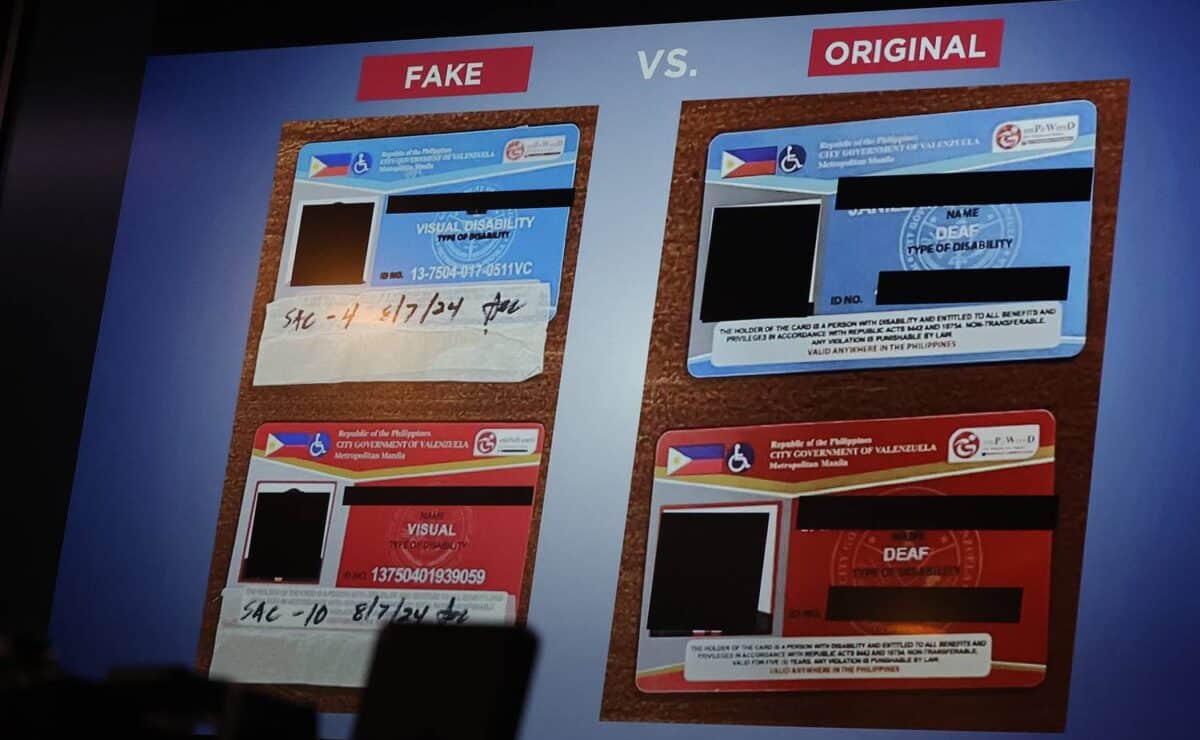
This photo shows the slide comparing legitimate persons with disabilities (PWD) IDs and fake PWD IDs during the hearing of the Senate committee on ways and means at the Senate of the Philippines, Pasay City, on Thursday, December 5, 2024. INQUIRER / NIÑO JESUS ORBETA
MANILA, Philippines — The spread of counterfeit persons with disabilities (PWD) IDs “trivializes” the struggle of legitimate holders, according to the Commission on Human Rights (CHR).
The CHR said the use of phony PWD IDs “is a serious violation of the law and an affront to the dignity and rights of persons with disabilities.”
“Fraudulent practices of this nature undermine the integrity of these privileges and trivialize the legitimate struggles and daily challenges faced by persons with disabilities. These benefits are essential to improving their quality of life and fostering inclusivity in society,” it also said in a statement Monday.
READ: Crackdown on fake PWD IDs
CHR’s remarks followed Sen. Sherwin Gatchalian’s revelation during a Senate committee on ways and means hearing that government and private businesses lose P110 billion “in terms of tax leakage” because of fake PWD IDs.
Gatchalian disclosed that 8.5 million counterfeit PWD IDs are in circulation nationwide.
The Department of Health, however, said only 1.8 million PWDs are registered in the country and entitled to a 20 percent discount on value-added taxes for certain goods and services.
READ: Senate probe bares ‘amusing’ stories on use of fake PWD cards
To combat the proliferation of bogus PWD IDs, the Department of Social Welfare and Development (DSWD) revealed its development of a unified ID system. The Bureau of Internal Revenue (BIR), for its part, said it is conducting a crackdown against fake PWD IDs.
The CHR lauded the two initiatives as “they are crucial in safeguarding the benefits and privileges accorded to persons with disabilities while ensuring that resources are allocated to those who genuinely need them.”

